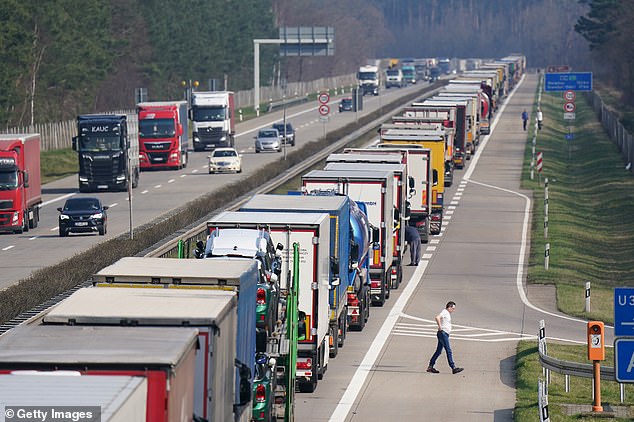Brussels takes Britain to the EU Court of Justice for ‘failure to comply with free movement laws’ after Brexit
Brussels is taking Britain to the Court of Justice of the European Union for allegedly failing to comply with free movement laws after Brexit. This is the first major fallout between the two parties since Labor came to power.
The European Commission said it believed there were “several shortcomings” in the UK’s implementation of treaties at the end of 2020, with allegations centering on Britain’s failure to comply with EU laws on the free movement of people.
Britain left the bloc in early 2020, but agreed in the Brexit deal to allow European nationals and their families already living in Britain to continue living there.
In a statement, the Commission said: ‘The European Commission has finally decided to refer the United Kingdom to the Court of Justice of the European Union… for failure to comply with EU law on the free movement of EU citizens and their relatives. of 2020.
“Having carefully assessed the UK’s responses, the Commission continues to maintain that several elements of the grievances remain unresolved, including on workers’ rights and the rights of extended family members,” it added.
The legal action comes as the Labor government elected this year has sought to “reset” relations with Brussels after years of post-Brexit rancor under previous Conservative governments.
British Prime Minister Keir Starmer held talks with commission chief Ursula von der Leyen in Brussels in October, and this month Chancellor of the Exchequer Rachel Reeves became the first British chancellor since Brexit to attend a meeting of eurozone counterparts.
The case was initiated in May 2020, when the EU sent Britain a formal notice complaining that national law limited the scope of beneficiaries of EU free movement law.
Britain left the bloc in early 2020, but agreed in the Brexit deal to allow European nationals and their families already living in Britain to continue living there. Pictured: Queues at Dover Harbour

A queue for trucks at the German-Polish border

Officers arrest a man at the German-French border in Kehl, West Germany

A German police officer with a watchdog at the border with France, as all German land borders are subject to random checks
The Commission’s infringement decision said Britain had breached the Free Movement Directive and three articles of the EU Treaties by ‘failing to comply with EU law on the free movement of EU citizens and their family members’ .
It added: ‘EU law on the free movement of people continues to apply to and in the United Kingdom as if it were still an EU Member State during the transition period.
‘In addition, the rights of EU citizens living in Britain after the end of the transition period, as set out in the Withdrawal Agreement, are based on the rights they currently enjoy in the UK under EU rules.
“The UK’s shortcomings in implementing and transposing EU free movement law therefore also threaten to impact the implementation of citizens’ rights under the Withdrawal Agreement after the end of the transition period.”
In July this year, the EC announced that further action had been taken due to persistent shortcomings in the UK’s implementation of the treaty.
The UK then had two months to respond to the EC’s concerns, with the EC threatening that it would decide to refer the case to the European Court of Justice.
But despite talks with London, the commission said “several elements of the grievances remain unresolved, including those over workers’ rights and the rights of extended family members” – warranting legal action.
Great Britain formally left the EU on January 31, 2020.
But under the ‘withdrawal agreement’, EU citizens and their family members who moved to Britain before the end of 2020 were given broadly the same rights as before Brexit.
